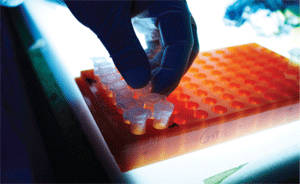Researchers in Australia will soon launch a study to find tear proteins that can be used as biomarkers to diagnose breast cancer more quickly and cost-effectively.

Researchers in Australia will analyze tear samples to detect proteins that indicate signs of breast cancer.
Experts at the Brien Holden Vision Institute, Minomic International, and the University of New South Wales will recruit 120 breast cancer patients, 30 patients with benign breast diseases and 30 age-matched control subjects, to collect basal tears and sera. They will analyze the samples using modern proteomic techniques, such as protein electrophoresis, iTRAQ mass spectrometry and multiple reaction monitoring, to detect proteins that change in the disease condition.
“If some reliable biomarkers can be found in tears, the current diagnostic method for breast cancer, which relies on a problematic serum cancer antigen CA 15-3, will be improved,” says Zhenjun Zhao, a senior research fellow at the Brien Holden Vision Institute. “Furthermore, the study may discover some biomarkers that can be used for early diagnosis and staging of breast cancer, and monitoring breast cancer progression and/or the effects of treatment. These results may greatly improve the management of breast cancer patients.”
If successful point-of-care testing can be developed using modern techniques, then it would offer a cheap, fast and convenient diagnostic method that could be widely used.

